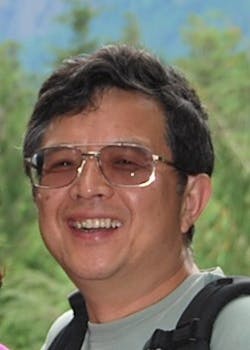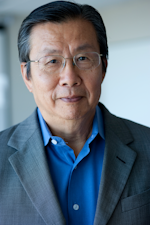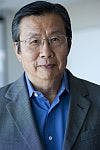Business Forum: Developing new photonics technologies creates unique solutions for new problems

This month, I interviewed Dr. Yong Zhang, CEO of Access Laser Company (Everett, WA). He received his PhD from Caltech after his college education in China. It is interesting to note that he and I have the same Chinese last name. The current translation is Zhang, whereas pre-Mao it was Chang. The implication is he is younger and came from China, whereas I came from Hong Kong.
MC: What was your experience at Caltech?
YZ: Professors and fellow students were impressive, and a bit intimidating—they were all smarter. Professors Bill Bridges, Amnon Yariv, and Dave Middlebrook left a deep impact on me. I learned to understand the physics behind the math to develop the right intuition. Approximation and model building were essential in solving real-world problems—doing so required a deep understanding of the physics.
MC: Well, that's how we learned to not be arrogant. Was it easy for you to adjust to the culture in Pasadena?
YZ: I had a good experience. I was prepared for a cultural shock—the real shock was that there was no cultural shock. The nature of people is very similar between China and the U.S.
MC: You did well on your first job, obviously. What did you learn?
YZ: Some classmates and I talked about starting our own business before graduating. My later experience led me to believe we could not have succeeded because there are practical issues we'd have to learn by making mistakes. The technical know-how people before us have developed may not be hard to understand when it is shown to us, but it could've taken a lifetime to figure out without that input.
MC: Did you have notable mentors along the way?
YZ: Yes. I learned a lot from my boss Peter Laakmann, founder and CEO of Synrad, who trusted me, and I responded by being worthy of his trust. I left the company only after Peter's untimely death.
MC: Then, you founded Access Laser? What were the initial applications?
YZ: I left Synrad and started to consult for other companies. Then, I started Access Laser. Initial applications of our CO2 lasers were mostly for academic research. Customers required stability in wavelength, mode, and power. Tunability was also key in many applications. The uniqueness of our products enabled customers to develop commercial systems that were also unique.
MC: I still think of the CO2 laser as a raw power source. How about naming a few lesser-known applications?
YZ: Our lasers are used in a variety of spectroscopy schemes to detect trace gas for industrial processes, environmental monitoring, and medical diagnostics. They are used in fog-penetrating optical detection/imaging/ranging and in the processing of glass/quartz materials, such as the manufacturing of critical components for high-power fiber lasers. Another lesser-known application is in the generation of EUV to extend Moore's Law. They are also used for gravitational wave detection—I mention this because of the scientific impact of LIGO (Laser Interferometer Gravitational-Wave Observatory). Recently, researchers at UCSF report 9.3–9.6 μm of CO2 laser wavelength has the best interaction with teeth among all available lasers.
MC: You mean the Caltech-MIT LIGO uses your laser to detect gravitational wave?
YZ: Our laser is not the main beam. It is used in what is essentially an adaptive optics scheme to counterbalance the thermal distortion of optics caused by the main beam. I imagine this approach would find applications beyond LIGO.
MC: What attributed to the success of your business?
YZ: We chose to focus on needs that were not met, rather than on price-sensitive standard applications. Some customers were willing to fund us NRE for products that had never been built before other customers were willing to pay a premium for unique features and customization, which required extra engineering.
I am lucky in that I have good people whom I trust and who were willing to make sacrifices with me from the get-go. I am also lucky to have a strong, experienced board of directors to advise me. They steered me in strategic matters so that we could take advantage of our technical expertise and avoid competing in areas of our weaknesses.
Having passion in what we do is another contributing factor. We would have given up when we faced severe difficulties if making money were the only motivation. As some employees would say, "We won't have so much fun if we are only working for the pay."
MC: How would you sum up your philosophy towards employees?
YZ: I realized that it is essential to assemble a group of capable people with similar aspirations but different talents, not letting my own limitations stand in their way, and trusting them to do their jobs in their own way. My operating philosophy is to reward people who work hard before rewarding myself. On the other hand, I have learned to let go of people who could not thrive in our particular environment.
MC: How did you get financed?
YZ: Seed capital came from a friend who is an angel investor. I took out home equity loans on my house before we became self-sustaining by taking on projects and generating sales revenue.
MC: I understand you recently participated along with Laser Focus World in Laser Shanghai. What is your impression of the technical standard of Chinese-made lasers? They surely are going up in volume based on the recent papers presented at the Marketplace Seminar at SPIE Photonics West.
YZ: Generally speaking, they are relatively low in quality and reliability, but given time and effort they can come up. On the other hand, they still rely heavily on imported critical components.
MC: Are there many laser companies in China started by individuals returning to China after being educated overseas?
YZ: Yes, there are quite a few of them—not just educated overseas, but also returning to China with work experience. This has sometimes caused issues in IP rights.
MC: I get the impression that getting funding to start a business in China is relatively easy? I would think investors in China expect a quick return—just like in real estate investments.
YZ: The funding sources are similar to the U.S. except for one big factor, which is the government with its omnipresence. Private investors, established companies, and private equities are all available, but investors tend to be short-sighted. Their goal is either to go public in a few years or to attract large sums of government subsidies in the form of easy loans and cheap land/real estate. It has been so much easier to make money in real estate that investing in technological innovation for long-term growth seems unattractive.
MC: What is the vision you have for your company?
YZ: We would continue to develop new photonic technologies to create unique solutions for new problems facing our customers, and grow the company in the process.
MC: I thank you very much for sharing your experience. Congratulations for your remarkable success. You are doing a lot of things right!
MILTON CHANG of Incubic Management was president of Newport and New Focus. He is currently director of mBio Diagnostics and Aurrion. He is a Trustee of the California Institute of Technology and has served on the SEC Advisory Committee on Small and Emerging Companies and the Visiting Committee on Advanced Technology of the National Institute of Standards and Technology, and the authoring committee of the National Academies' Optics and Photonics: Essential Technologies for Our Nation. Chang is a Fellow of IEEE, OSA, and LIA. Direct your business, management, and career questions to him at [email protected], and check out his book Toward Entrepreneurship at www.miltonchang.com.

Milton Chang
MILTON CHANG of Incubic Management was president of Newport and New Focus. He is currently director of mBio Diagnostics and Aurrion; a trustee of Caltech; a member of the SEC Advisory Committee on Small and Emerging Companies; and serves on advisory boards and mentors entrepreneurs. Chang is a Fellow of IEEE, OSA, and LIA. Direct your business, management, and career questions to him at [email protected], and check out his book Toward Entrepreneurship at www.miltonchang.com.
